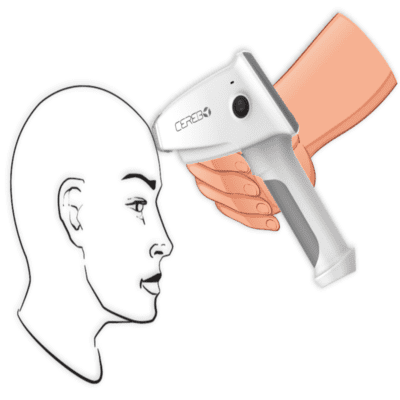Context:
Recently, the Indian Council of Medical Research (ICMR) has launched CEREBO, a handheld, portable, non-invasive diagnostic device designed for the rapid detection of Traumatic Brain Injuries (TBIs).
Background:
India witnesses one of the world’s highest rates of head injuries, with over 100,000 deaths and more than a million serious injuries reported annually.
· Traumatic Brain Injuries (TBIs) account for a significant share of these cases, with nearly 50% of fatalities occurring within the first two hours.
· Despite the urgency, diagnostic tools like CT scans and MRIs remain inaccessible in many rural and emergency settings.

About the CEREBO
Developed in collaboration between the Indian Council of Medical Research (ICMR), the Medical Device & Diagnostics Mission Secretariat (MDMS), AIIMS Bhopal, NIMHANS Bengaluru, and Bioscan Research, this innovative tool addresses the urgent need for quick, accessible, and affordable Traumatic Brain Injuries diagnosis, especially in rural and emergency settings.
· It operates using near-infrared spectroscopy powered by machine learning algorithms. It detects intracranial bleeding and cerebral edema in less than one minute.
· The device has undergone clinical validation, multi-centre trials, and regulatory approvals, paving the way for widespread adoption in India’s healthcare system and potential global deployment in disaster and military medicine.
Its key features include:
- Radiation-free, making it safe for infants and pregnant women
- Requires minimal training (30 minutes) for paramedics or unskilled users
- Offers colour-coded results for fast triage and decision-making
- Does not rely on electricity or large infrastructure
- Can be deployed in ambulances, trauma centres, rural clinics, and disaster zones
The device effectively bridges the gap in diagnostics where CT and MRI scans are inaccessible, delayed, or unaffordable.
Benefits of CEREBO
1. Rapid and Early Diagnosis
o Helps detect life-threatening conditions like brain bleeds early, potentially saving lives.
o Critical during the "golden hour" where early intervention is essential.
2. Accessibility in Remote Areas
o Ideal for rural India, where imaging infrastructure is limited or non-existent.
o Can be deployed by ambulance staff during transport to tertiary care.
3. Cost-Efficiency
o Significantly cheaper than CT/MRI scans.
o Reduces dependency on large hospitals and costly infrastructure.
4. Triage Support in Emergency Rooms
o Aids doctors in prioritizing cases quickly, reducing diagnostic burden in overcrowded trauma centres.
Conclusion
CEREBO represents a significant breakthrough in the diagnosis and treatment of traumatic brain injuries. By providing rapid, non-invasive, and radiation-free detection of intracranial bleeding and edema, this portable device has the potential to revolutionize emergency care and rural healthcare access.






